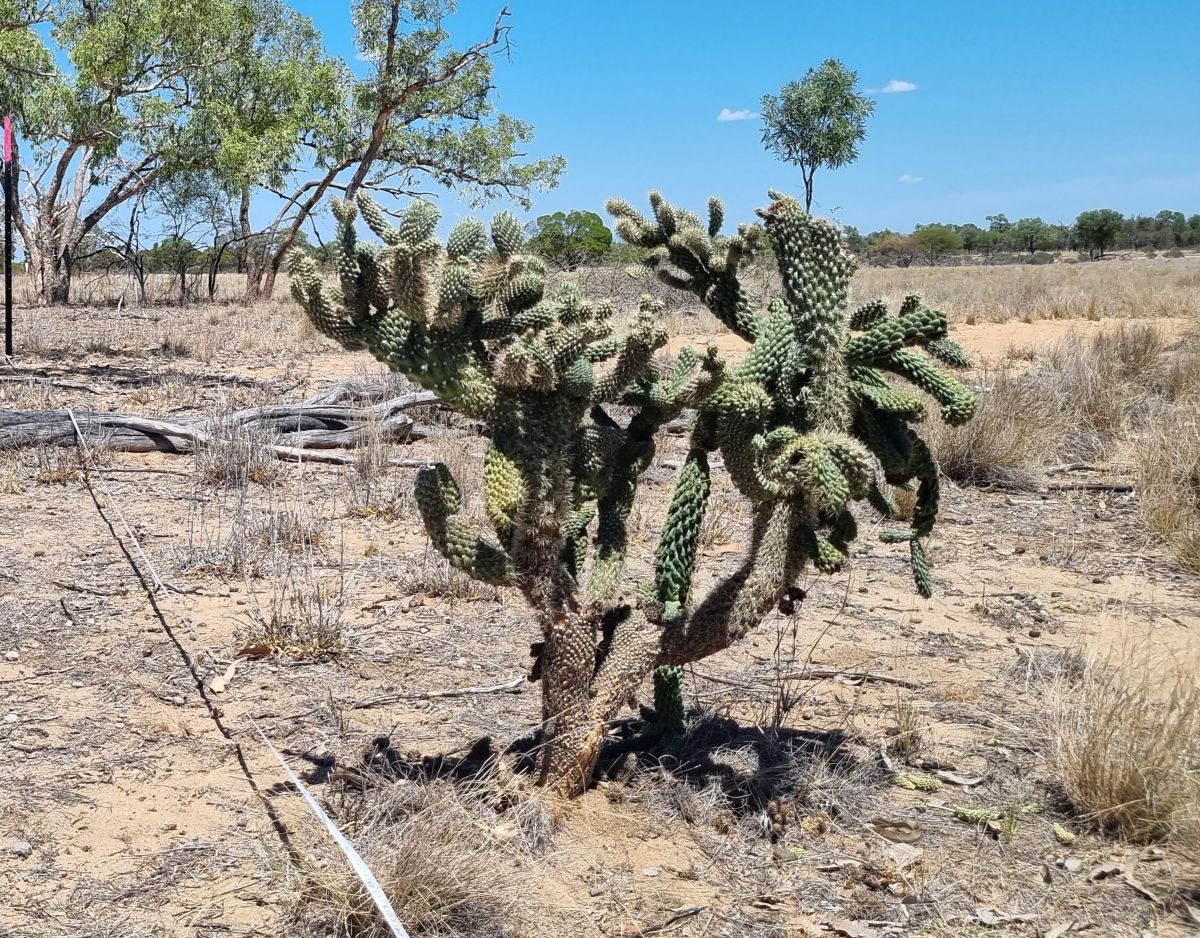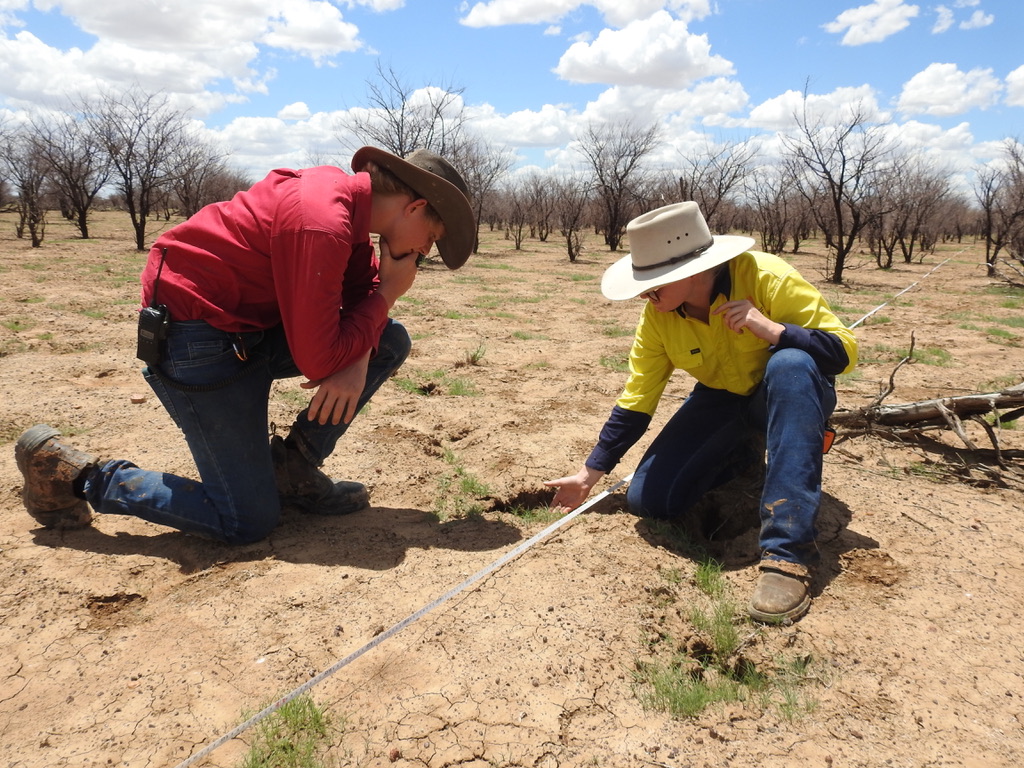Cactus and Succulents – Climate-Smart Agriculture

Cactus weeds have become more aggressive in our region due to climate shifts, drought and rainfall variability.
Funded by

Climate-Smart Agriculture Program under the Natural Heritage Trust
Cactus are becoming more competitive.
Cactus weeds such as jumping cholla and coral cactus, and succulents such as mother of millions, are a major biosecurity concern in Western Queensland.
Shifts in temperature, drought conditions and rainfall variability mean cactus weeds are becoming more aggressive due to their ability store excess moisture and survive and thrive in tough, variable conditions. These invasive species outcompete native grasses and legumes, and are a growing threat to agricultural assets and biodiversity in the Desert Channels region.
This project will focus on identifying and treating cactus and succulent infestations in four districts, including Ravensbourne Creek near Blackall and Darr River near Longreach.
As part of the project, we’ll also:
- Map the spread of cactus and succulent weed infestations across the Desert Channels region.
- Partner with landholders and local government to conduct targeted intervention in upper catchment properties.
- Work with landholders to reduce reliance on fossil fuels, including industry collaboration to conduct on-farm trials of a new water-based herbicide.
- Host ‘field days’ in the Desert Channels region.
- Increase public awareness of natural asset condition through the development of a new Regional Report Card.
- Seek full coverage of landholders in priority districts, including working to reduce biosecurity risks.
Other projects
Like to be involved?
Connect with us today if you would like to participate in this project or to find out more.

